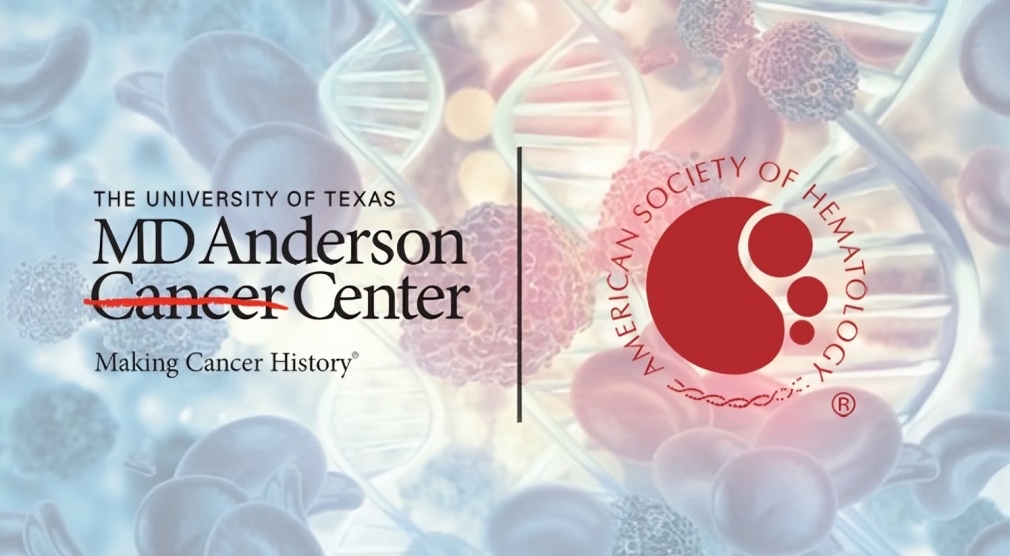
ASH: Monoclonal antibody therapy improves survival in cancer-associated hyper-inflammatory disorder
ELA026 Shows Promising Results in Phase Ib Trial for Malignancy-Associated HLH. MD Anderson Researchers Report 100% Response Rate at ASH Annual Meeting
Adult patients with newly diagnosed malignancy-associated hemophagocytic lymphohistiocytosis (mHLH) – a rare, aggressive hyperinflammatory condition – who were treated with the first-in-class monoclonal antibody, ELA026, experienced a 100% response rate and an improved survival rate at two months, according to researchers from The University of Texas MD Anderson Cancer Center.
Data from the Phase Ib trial were presented today at the 66th American Society of Hematology (ASH) Annual Meeting and Exposition by Abhishek Maiti, M.D., assistant professor of Leukemia and the trial’s principal investigator. The findings suggest that early intervention with ELA026 may provide meaningful clinical benefits for patients with few options.

“It is common for patients with mHLH and cancer to be treated with chemotherapy, but this can often cause challenges towards treating their primary cancer diagnosis at the same time due to the side effects and poor organ function due to HLH.
This therapy was well tolerated as a frontline treatment for mHLH and helped us to gently control the disease using a precise approach, which enabled us to deliver treatment for the underlying cancer simultaneously.”- said Abhishek Maiti.
Triggered by malignancies, infections, autoimmune diseases or treatment with immunotherapy or CAR T cell therapy, mHLH is caused by the body’s inability to inactivate T cells and macrophages after an initial immune response. The condition can cause organ failure and has a mortality rate of approximately 50% at two months. There are no current approved therapies for mHLH.
ELA026 works by targeting the SIRPα/b proteins found on myeloid cells and SIRPγ on T lymphocytes, leading to their depletion. In the global, open-label, single-arm trial, patients were treated with ELA026 for 12 weeks either intravenously or subcutaneously.
The study enrolled a total of 22 sHLH patients, including 7 with relapsed or refractory sHLH and 15 being treated with ELA026 as frontline therapy.
Earlier cohorts suggested patients with relapsed or refractory sHLH had worse outcomes compared to those who were treated in the frontline settings, so the study was refined to focus on those patients predicted to benefit the most from treatment with ELA026.
Of the 12 mHLH patients, treated in frontline settings, 58% had T-cell Lymphoma, 17% had B-cell lymphoma, 17% had leukemia and 8% had Hodgkin lymphoma. The median age of participants was 47.
By week four, the response rate with ELA026 was 100% in the frontline setting, with two patients having a modified complete response and ten having a partial response. In mHLH patients treated in frontline settings, survival was 92% at two months, and the median overall survival had not yet been met at data cutoff.
Although patients with relapsed/refractory hemophagocytic lymphohistiocytosis achieved response with therapy, they did not appear to derive survival benefit. Researchers recommend early intervention to provide meaningful clinical benefits.
Side effects included treatment-related infusion reactions and cytopenias, which were manageable with supportive care and dosing modifications.
“These early results are encouraging and reinforce the need for early intervention with mHLH in order to provide better outcomes for patients.
We look forward to the next phase of this study so that we may evaluate the potential of ELA026 as an effective treatment for patients with this rare but aggressive condition.” – said Abhishek Maiti.
Additional MD Anderson collaborators on this trial include Naval Daver, M.D., professor of Leukemia, Swaminathan Iyer, M.D., professor of Lymphoma/Myeloma, and David McCall, M.D., assistant professor of Pediatrics.

The trial was funded by Electra Therapeutics. Maiti receives research support from Electra. A full list of co-authors and their disclosures may be found here.
Further Reading:
MD Anderson Research Highlights: ASH 2024 Special Edition
Obe-cel CAR T Therapy Achieves High Response Rates in R/R B-cell ALL: FELIX Trial Results
Best of 66th ASH Annual Meeting and Exposition
-
Challenging the Status Quo in Colorectal Cancer 2024
December 6-8, 2024
-
ESMO 2024 Congress
September 13-17, 2024
-
ASCO Annual Meeting
May 30 - June 4, 2024
-
Yvonne Award 2024
May 31, 2024
-
OncoThon 2024, Online
Feb. 15, 2024
-
Global Summit on War & Cancer 2023, Online
Dec. 14-16, 2023
